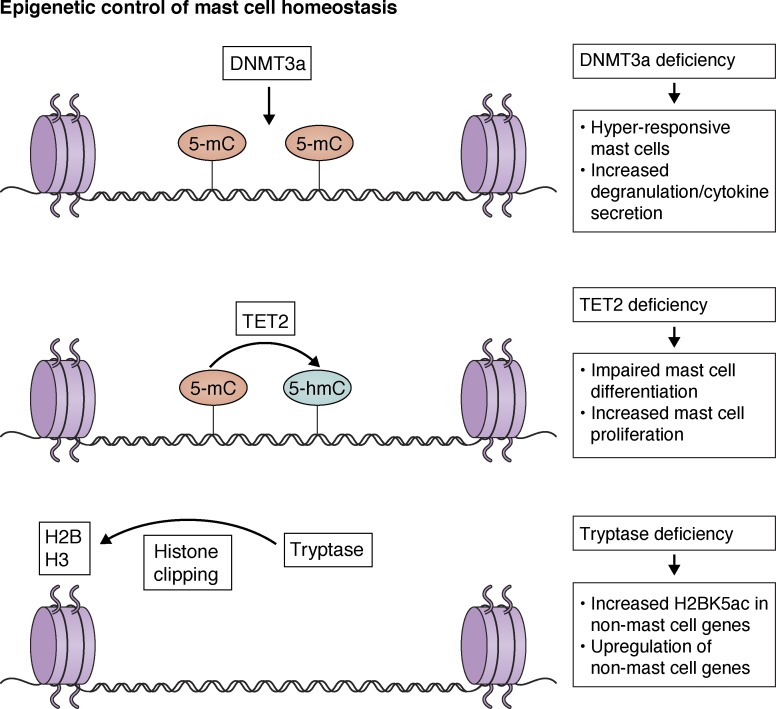Figure 2.
Epigenetic control of mast cell homeostasis. DNA methyltransferase DNMT3a is involved in de novo DNA methylation in CpG regions, which is important for gene expression regulation and homeostasis in mast cells. DNMT3a-deficient mouse mast cells are hyper-responsive to FcεR1 cross-linking and release increased mediators and cytokines. TET2, however, converts 5-mC to 5-hmC in DNA. TET2 functions are also important for mast cell proliferation and mediator release. TET2-deficient mouse mast cells are impaired in differentiation, but they have elevated proliferative capacity in culture. Importantly, TET2 mediates both enzymatic activity–dependent and independent functions in mast cells. Mast cell protease tryptase is another epigenetic regulator in mast cells. Nuclear tryptase is involved in the clipping of histone H2 and H3. Notably, tryptase deficiency results in increased H2BK5ac levels in non–mast cell genes.

